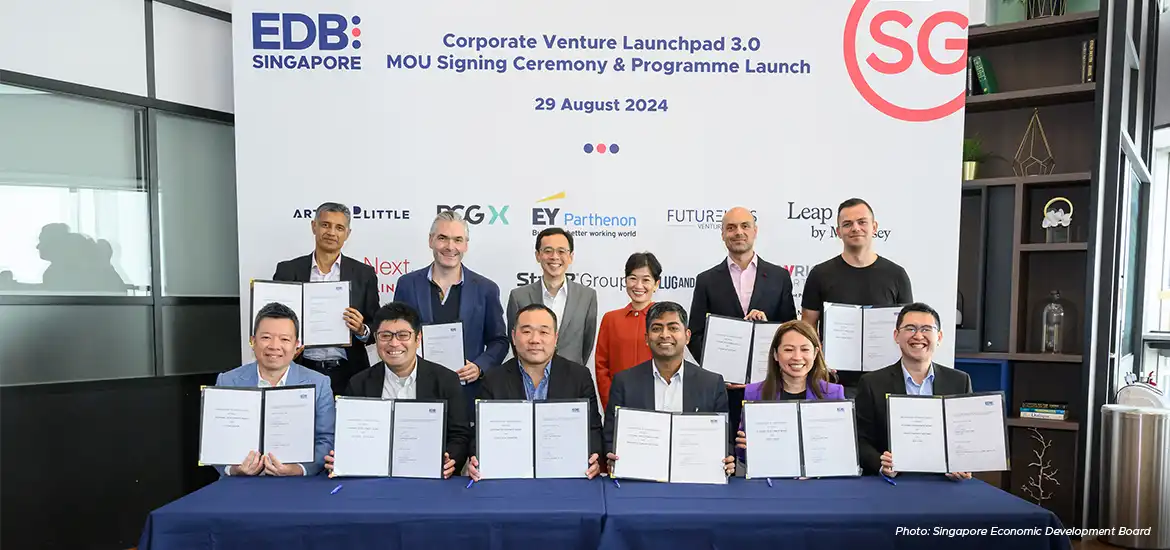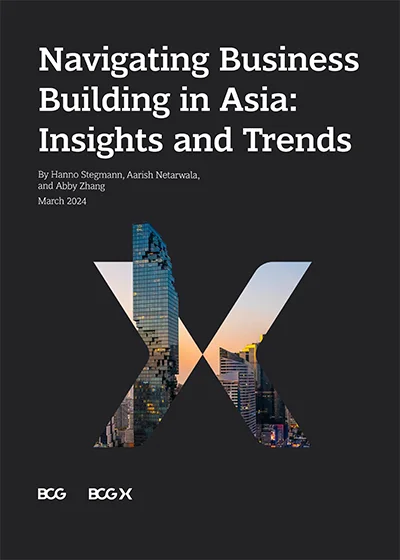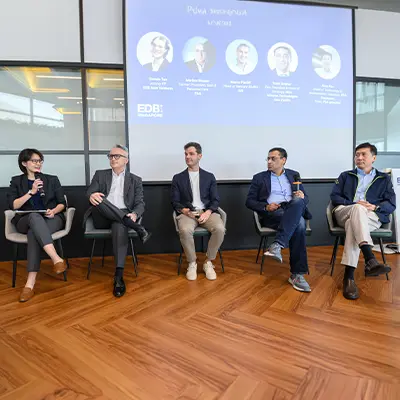The Singapore Economic Development Board (EDB) is injecting S$32 million more over the next two years to expand its corporate venture programme.
Corporate Venture Launchpad (CVL) 3.0 will also make it easier for Singapore-based companies to form partnerships with startups.
This third tranche of funds is 60 per cent higher than the S$20 million it committed to the second edition of its CVL programme in 2022. The initiative was launched in May 2021 with S$10 million in pilot funding.
Through the programme, EDB’s New Ventures team will work — together with nine appointed partners — with selected companies to innovate in growth areas.
These partners comprise both venture studio partners and open innovation partners; they will guide companies to create ventures as well as to collaborate with startups.
Since the launch, EDB has supported 24 companies in launching 14 new ventures, with more in the pipeline.
One of the participants in CVL 2.0 was French energy group Engie’s venture-building arm Engie Factory. The programme has helped incubate two of its ventures — one on battery management software, and the other, on biomass-to-energy applications.
In the third edition, EDB wants to expand its support to help foster partnerships between startups and established large corporates.
Jacqueline Poh, managing director of EDB, said at the launch of CVL 3.0 on Thursday (29 August): “What we heard from companies was that there were misaligned expectations between the companies and startups.”
Internal processes were not startup-friendly, it was difficult to match startups to the problems the companies were dealing with, and there was no clear line of sight towards the outcomes with the most impact for large companies, she said.








